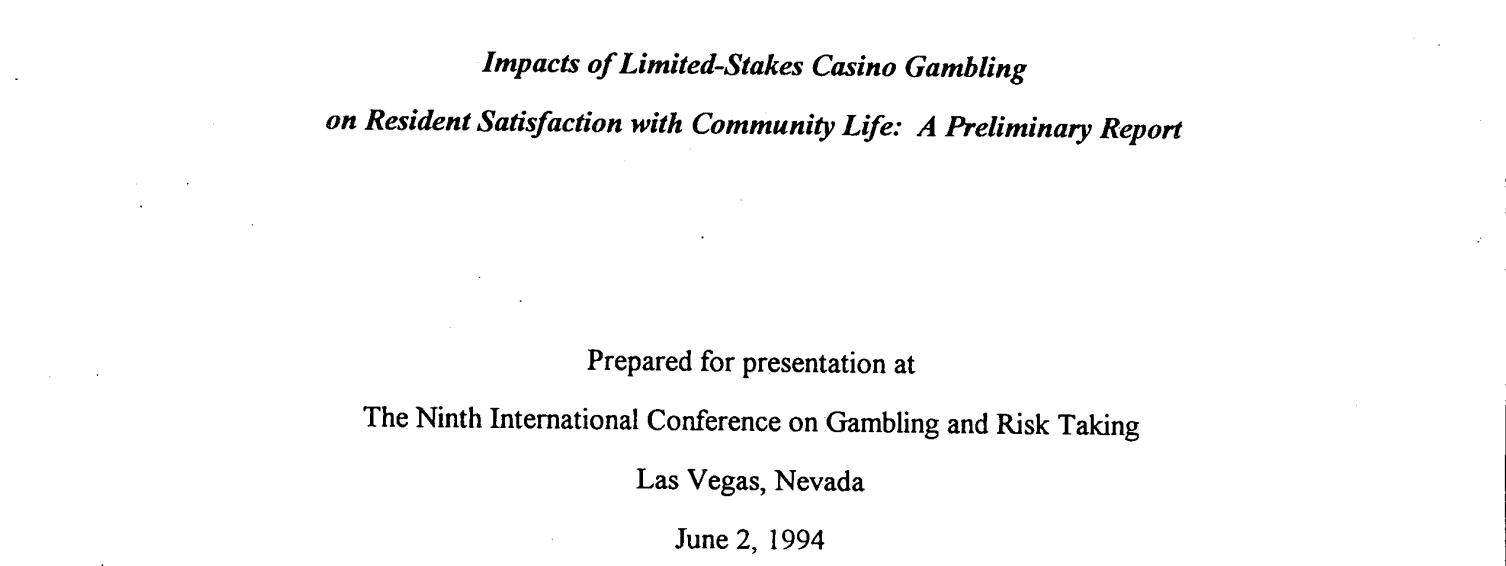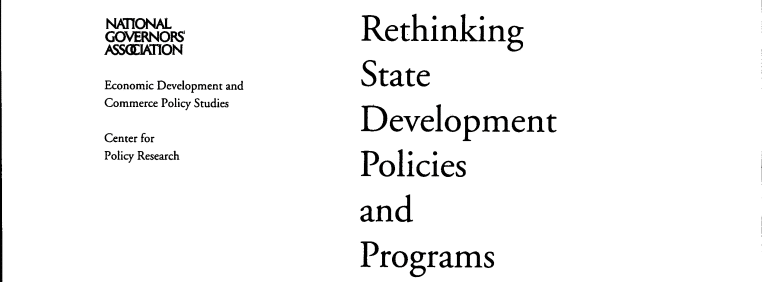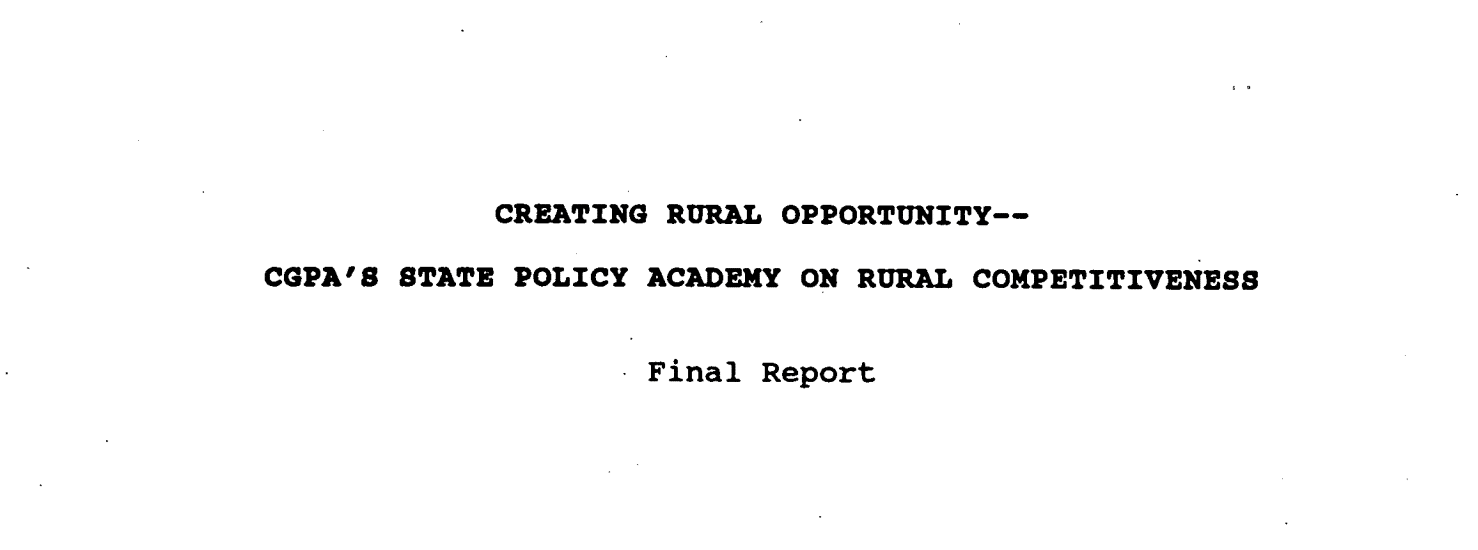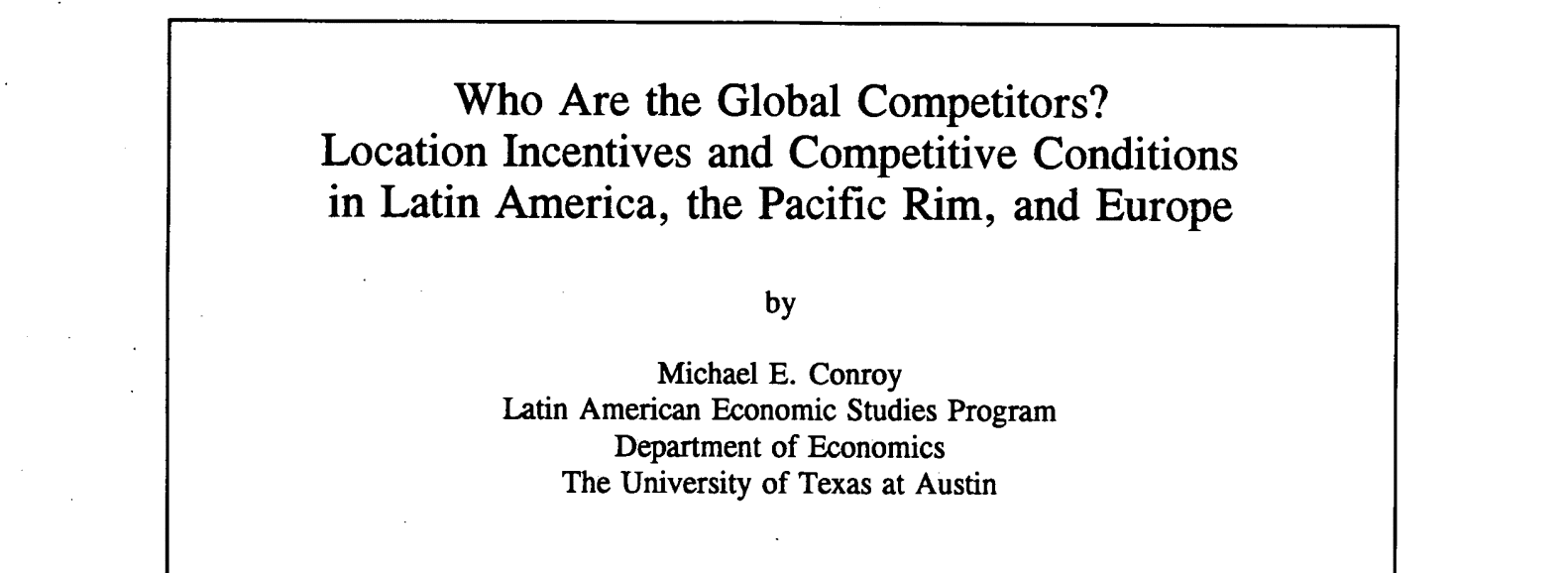Building Regional Strength: A Call to Action
Insights and recommendations to build healthy, thriving rural & Indigenous regions.
Rural Resources, Insights, and Collaborations by Aspen CSG and Partners
Insights and recommendations to build healthy, thriving rural & Indigenous regions.


Paper reports on the testing of select hypotheses predicting the response of residents of gambling communities in assessing satisfaction with community life

Paper examines changing labor markets, declining living standards, and the need for modernization of job training programs within workforce development policy.

Paper provides overview of issues facing education in the context of an increasingly globalized economy.

Document presents platform of Southwest IAF.

This report created to educate Governors about long-range economic development policy and the decisions they make related to new business investment and expansion of existing firms.

Document provides agenda and speaker information for the Investing in People (IIP) Workforce Policy Institute II Conference held in Key West, Florida.

Summary of meeting of telecommunications and rural development professionals from across the United States held to review the status of rural telecommunications and to recommend courses of action to advance the field.

This final report from the CGPA addresses challenges in rural development, offering strategies to improve rural communities' quality of life.

Index of 1993 Conference "Globalization and the North American Free Trade Agreement:Impact on Rural Communities" Participants and Schedule.

Paper presents a preliminary report on a project at the University of Texas which was then developing a comprehensive database on regional location incentives and relative regional competiveness.

Argument examines the labor market from the perspective of working families and argues need to change dramatically how labor market think about "good jobs."

Report shows wage stagnation among working-class families from 1973-1993.